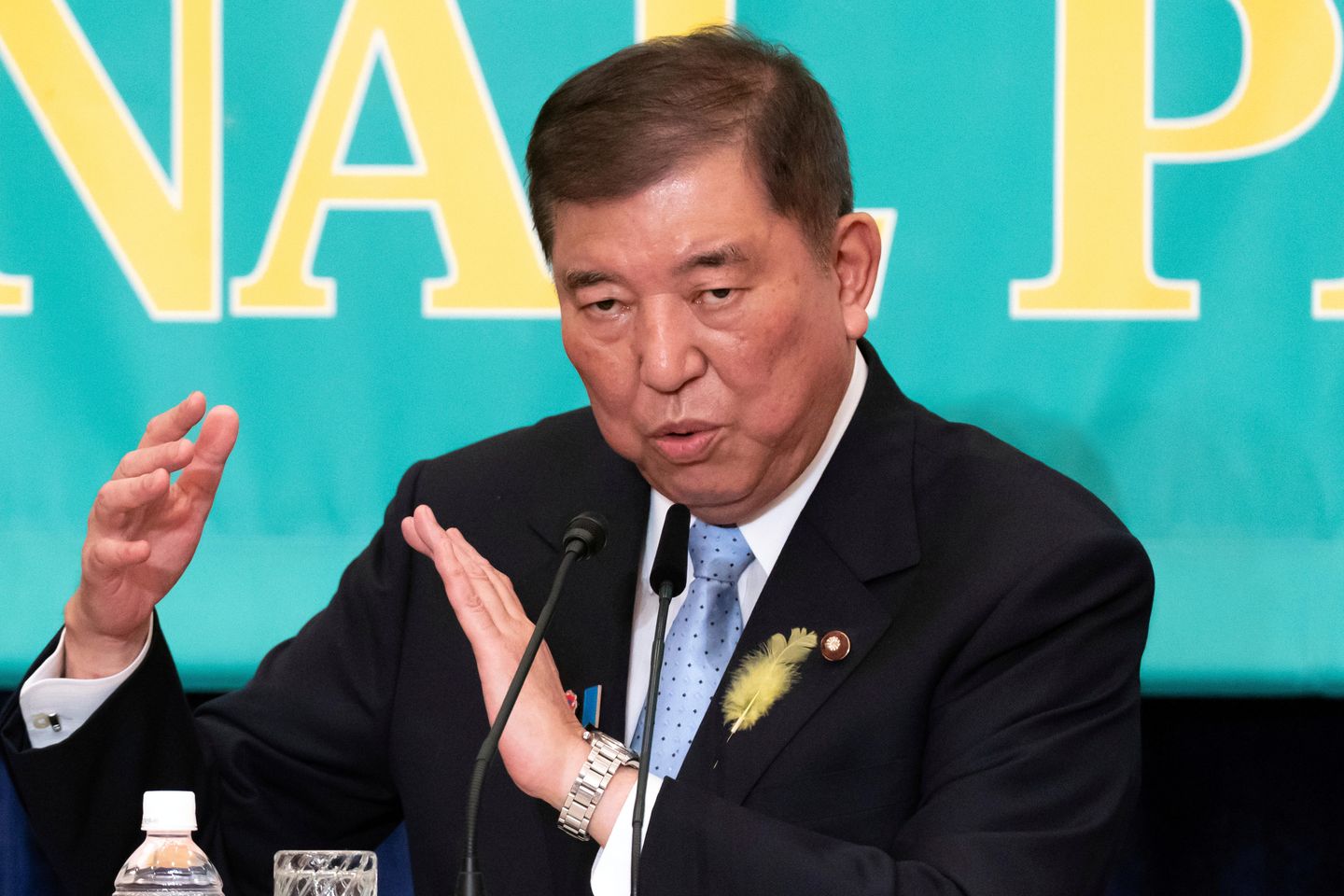
SEOUL, South Korea — Exit polls from Sunday’s elections in Japan indicated the loss of legislative seats for Premier Shigeru Ishiba and his ruling coalition — a result that could roil the long-ruling Liberal Democratic Party and potentially revive the country’s political tradition of “revolving door” prime ministers.
Campaigning in the run up to Sunday was marked by public concerns about living costs and inflation, overshadowed by imminent U.S. tariffs on Japanese exports and animated by the rise of an upstart, MAGA-style party that has tapped into anger about the presence of foreigners in Japan.
Mr. Ishiba’s Liberal Democratic Party and its junior coalition partner, Buddhist party Komeito, need to win 50 seats to retain control of the 248-seat upper house, the House of Councillors. Half the body’s seats are being contested in the current election, with six-year terms for the winning candidates.
Exit polling by broadcaster NHK found that the coalition is expected to secure 32-51 seats.
The upper house of Japan’s bicameral Diet is not as important as the lower house, the House of Representatives, which can override it. Nevertheless, councillors play an important role in overseeing, debating and sometimes delaying legislation.
The Ishiba-led LDP-Komeito coalition lost its majority in the lower house in an election last October. They have managed to govern, but are vulnerable to no-confidence motions.
The coalition looks likely to remain the largest single political power bloc in both houses of the Diet. However, if it loses the House of Councillors, “It would be the first time since 1955 that an LDP-led government loses control of both houses,” wrote Japanese political commentator Rin Nishimoto on X.
Further weaknesses could compel the coalition to horse trade with other parties, while managing factional fighting inside the increasingly unpopular LDP.
Late Sunday, Tokyo’s Sankei Daily quoted an aide to Mr. Ishiba stating, “It would be irresponsible for him to resign,” given the stern challenges the country faces.
That could set the stage for an intra-LDP showdown, with Mr. Ishiba taking on the party’s conservative core.
A wobbly Tokyo polity could not come at a worse time for Japan, facing an unusual showdown with its key ally.
The Trump administration has vowed to slam export-dependent Japan’s goods with 25% tariffs on Aug. 1 unless a bilateral agreement to crumble trade barriers is reached.
While some pundits believe Mr. Trump’s approach is to establish a negotiating position from which he is willing to be talked back, seven rounds of Tokyo-Washington talks have failed to reach a breakthrough.
Two particular areas that Mr. Trump has focused on — automobiles, Japan’s leading export, and rice, a protected, high-sensitivity sector — have sent shivers through the East Asian democracy.
While the LDP is broadly seen as conservative, Mr. Ishiba hails from the party’s softer wing. During the campaign, considerable political noise was generated by a rising competitor, Sanseito, which may lure votes from traditional LDP supporters, and which NHK exit polling expects to gain 10-22 seats.
Sanseito, founded in 2020 and with a slogan of “Japanese First,” has been compared to MAGA in the U.S. and Reform in the U.K. Those movements have challenged traditional conservative political machines by focusing on anti-immigration, nativist messaging.
In fact, Japan’s borders are secure and its migrant numbers are nowhere close, in percentage-of-population terms, to those of the U.S. and U.K. In terms of the number of foreign faces on its streets, Japan is a victim of its own attractiveness.
Post-COVID, hordes of not-always-polite tourists — partly attracted by smart marketing, partly propelled by a weak yen — have generated an anti-foreign backlash that has been reflected in politics.
Bigger risks may be lurking offshore.
Japan was shaken by Russia’s 2022 invasion of Ukraine, fearing it could embolden regional players like North Korea, with its expanding nuclear force, and China, with its muscular power-projection capabilities.
Earlier this month, China put both its operational aircraft carriers to sea in exercises off the strategic Japanese island of Iwo Jima. A third carrier, its largest yet, is undergoing sea trials and is expected to be commissioned by the end of this year.
These regional security jitters may prevent trade frictions from further fraying Tokyo-Washington ties.
“The Japanese are really upset now, but I think the cooler heads running Japan understand that they need the U.S.” said David Arase, a resident professor of international politics at the Johns Hopkins University.
Citing survey results among Tokyo elites on their perceptions of the U.S. alliance, Mr. Arase said: “They are smart enough to make a distinction between the U.S. and Trump.”














